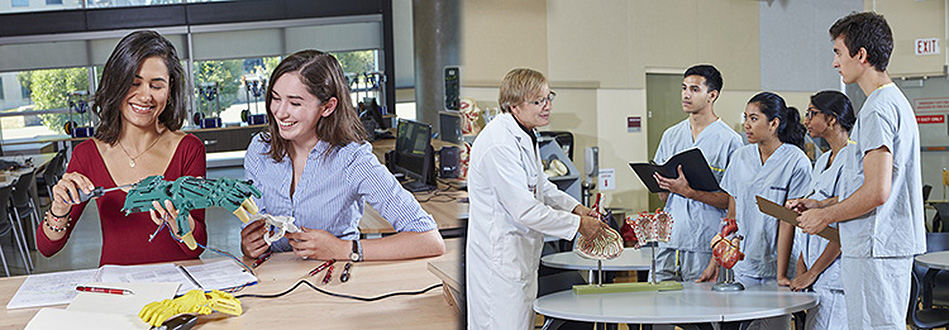New degree combines engineering and health sciences

A new degree program that brings together engineering and health sciences to solve real-world problems will launch at McMaster University in September 2017.
First of its kind in Canada, the new Integrated Biomedical Engineering and Health Sciences Program (IBEHS) will offer students a five-year biomedical program that integrates engineering and health sciences, allowing multiple pathways to careers in health, engineering and entrepreneurship.
The Ontario Ministry of Advanced Education and Skills Development has approved the new program.
After a common first year, students will enter either the Bachelor of Engineering and Biomedical Engineering (B.Eng.BME), or the Honours Bachelor of Health Sciences in Health, Engineering Science and Entrepreneurship (B.H.Sc.) degree program.
“We’re transforming healthcare challenges into a new learning experience with the IBEHS program,” said Hubert de Bruin, co-director of the program and professor of electrical and biomedical engineering. “Students who graduate from the IBEHS program will not only have the ability to analyze complex health care problems, but also to develop unique, effective solutions and take them to the marketplace.”
The new program, which will admit 140 students in the inaugural class, will include health solutions design projects during each year of study, a feature that makes it unique, said Michelle MacDonald, co-director of the program and associate professor of biochemistry and biomedical sciences.
“McMaster has a history of integrated undergraduate programs, like the Bachelor of Health Sciences (Honours) program, the Biomedical Discovery and Commercialization program, the Arts and Science Program and the Integrated Science Program,” MacDonald said.
“Students working together will bring different perspectives to the design solutions project courses as well as throughout the curriculum,” she said. “The creativity and cross-pollination that stems from this process brings about amazing innovative solutions that are completely executable and deliverable.”
Graduates of the program could go on to careers in technology, medicine, biomedical or other engineering specialties or pursue entrepreneurship opportunities.
“Students of this program will further their knowledge of contemporary socially relevant issues, ethics, and professionalism, based on which they will create solutions for real-world healthcare problems,” said Ishwar K. Puri, McMaster’s dean of the Faculty of Engineering.
“I’m very sure that the first graduating class in 2022 will consist of engaged citizen scholars who will go on to transform our world through their interdisciplinary and collaborative education in biomedical engineering and health sciences.”
Graduates of the new program will have a broad perspective, said Paul O’Byrne, dean and vice-president of the Faculty of Health Sciences.
“Health care is becoming more technologically driven, and it is important to have health professionals and engineers who understand the joint issues.”
For more information about the program go to www.eng.mcmaster.ca/IBEHS/


